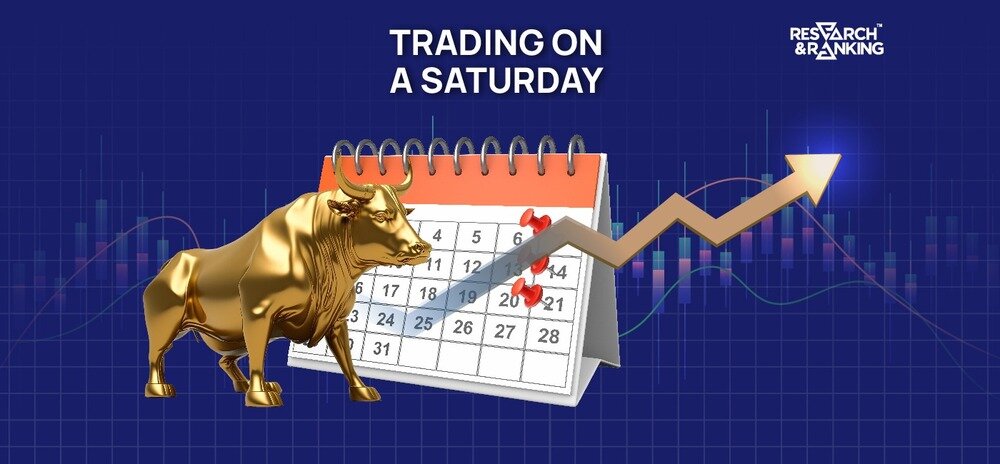Trading on a Saturday
Have you ever wondered why the stock market is closed on weekends? It’s a time for investors and traders to rest and recharge, but what if we told you the market opened on a recent Saturday? Don’t worry; there wasn’t a sudden change of heart about weekend breaks. This unscheduled opening had a very specific purpose.
On March 2nd, 2024, the Bombay Stock Exchange (BSE) and the National Stock Exchange (NSE) in India conducted special live trading sessions, even though it was a Saturday. If you are thinking, “Why open the market on a weekend?” The answer lies in preparation and ensuring smooth operations in unforeseen circumstances.
Why Weekend Trading?
These special sessions were part of a framework established by SEBI, the Indian securities market regulator, for Market Infrastructure Institutions (MIIs) like stock exchanges, depositories, and clearing corporations. This framework outlines a Business Continuity Plan (BCP) and Disaster Recovery Site (DRS) strategy. It’s like having a backup plan for the stock market if something goes wrong with the main system.
Testing the Market’s Disaster Recovery Plan
Think of it like having a fire drill at work. You practice what to do in an emergency to ensure everyone knows where to go and what to do. Similarly, these sessions were a drill for the stock exchanges, testing their ability to seamlessly switch operations to the backup site if the central system experiences glitches or disruptions.
Timings of the Special Trading Sessions
The March 2nd session was conducted within the Capital Market segment in two phases:
- Primary Site: Pre-open session (9:00 AM – 9:08 AM), Regular Session (9:15 AM – 10:00 AM)
- Disaster Recovery Site: Pre-open session (11:15 AM – 11:23 AM), Regular Session (11:30 AM – 12:30 PM)
Outstanding orders at the primary site were removed before trading began at the disaster recovery site. A similar drill was conducted on January 20th, 2024, with two trading sessions held during the day. The first session began at 9:15 AM and ended at 10:00 AM, while the second session began at 11:30 AM and closed at 12:30 PM. During both sessions, all futures contracts had an operating range of 5%.
The Global Landscape of Glitches
February 24, 2021 | The National Stock Exchange of India (NSE) halted trading for four hours due to a technical glitch. |
November 16, 2020 | The Australian Securities Exchange (ASX) experienced a 20-minute trading halt caused by a software issue impacting order placement and market data accuracy. |
October 1, 2020 | A hardware glitch within the trading system led to a full-day halt at the Tokyo Stock Exchange. |
July 1, 2020 | Germany’s Xetra trading platform faced a three-hour outage due to a third-party software problem, affecting European bond and stock futures trading. |
September 24, 2019 | Connectivity issues with internet service providers caused a trade outage in the last 15 minutes of the session at the NSE, impacting active participants. |
August 16, 2019 | A software issue delayed the opening of trading by nearly two hours at the London Stock Exchange (LSE). |
April 25, 2018 | The New York Stock Exchange (NYSE) suspended trading in several stocks, including Amazon and Alphabet, due to a technical glitch affecting trading symbols. |
July 11, 2017 | Trading on the NSE was halted for three hours as stock price quotations stopped updating. |
July 4, 2017 | A glitch on the Nasdaq displayed incorrect prices for major tech stocks, including Alphabet, showing a significant undervaluation. |
July 3, 2014 | The Bombay Stock Exchange (BSE) halted trading for three hours due to a network outage. |
Such instances highlight the importance of having a robust backup plan in place.
Did the market perform well?
Here’s a closer look at the market performance during this special session:
- The BSE Sensex climbed 60.80 points (0.08%) to reach its all-time closing high of 73,806.15. During the trade, it hit its record peak of 73,994.70 (0.33%).
- The Nifty rose by 39.65 points (0.18%) to settle at a new closing high of 22,378.40. It reached its lifetime peak of 22,419.55 (0.36%) during the day.
- The market capitalization of BSE-listed companies reached its all-time peak of Rs 394.06 lakh crore.
Are These Sessions Beneficial?
The effectiveness of these drills in testing the market infrastructure’s disaster recovery capabilities is undeniable. They highlight the importance of preparedness and continuous efforts to ensure the smooth functioning of the financial ecosystem. Additionally, they can boost investor confidence by demonstrating the market’s ability to handle unexpected events.
Know more about
IPO | Current IPO | Upcoming IPO | Listed IPO
Will These Sessions Become Regular?
The future of such sessions remains unclear. While the recent session on March 2nd, 2024, and the one held on January 20th, 2024, demonstrate their potential, it is uncertain if they will become a regular feature.
This story serves as a reminder of the importance of preparedness, not just in the financial world but in various aspects of life. It also raises questions about the future of financial markets and the potential impact of technological advancements on their operations. As technology evolves, so will the strategies employed to ensure smooth and uninterrupted functioning.
*Disclaimer Note: The securities quoted, if any, are for illustration only and are not recommendatory. This article is for education purposes only and shall not be considered as recommendation or investment advice by Research & Ranking. We will not be liable for any losses that may occur. Investment in securities market are subject to market risks. Read all the related documents carefully before investing. Registration granted by SEBI, membership of BASL, and certification from NISM in no way guarantee the performance of the intermediary or provide any assurance of returns to investors.
How useful was this post?
Click on a star to rate it!
Average rating 5 / 5. Vote count: 1
No votes so far! Be the first to rate this post.
I’m Archana R. Chettiar, an experienced content creator with
an affinity for writing on personal finance and other financial content. I
love to write on equity investing, retirement, managing money, and more.
























